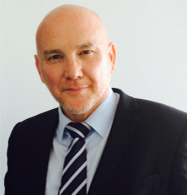When you’re ready to next hire a new team member, have a good look around you. At the same time, peer into the mirror. Is your team disturbingly familiar? Is there a ‘same-same, but different’ approach in your hiring practices? If this is the case, you could be missing out on finding someone who can bring more to the job.
Not looking outside your comfortable circle will hamper innovation, development, and customer relationships. “If you constantly hire people who are just like you, your perspective is limited. so when it comes time to challenge the status quo, to look for that new innovative product or service, those questions never get asked,” says Asnicar.
While it’s true that people may enjoy hanging out with like-minded types in their leisure hours, this is not always the case at work. For example, a division of an aircraft engine company experienced 100 per cent turnover within 12 months after people discovered that they didn’t like working with people who were too much like them.
Why bias is bad
“Implicit bias actually affects the small business owner because they hire firstly in their own likeness. Small businesses don’t have the luxury of hiring for perspective. They often have to have multiple characteristics in one person, because they don’t have a big team,” explains Steven Asnicar, CEO of consulting firm Diversity Australia, who notes there are inherent dangers in the like-for-like approach to recruitment.
Then there’s your customer. Australia’s a multicultural country. We’re young, old and in between; male, female and non-gender specific. And it’s wise to understand the differences in your customer base by incorporating a little difference in your team as well. “If you don’t reflect your customer base, and you don’t understand their needs then you can’t service them properly,” says Asnicar.
Different shades of bias
The term ‘implicit’ (or unconscious) bias surfaced earlier this century. It usually signified an unconscious lack of racial diversity or discrimination against a person or persons on the grounds of their race. This is still the case but other forms of bias have come to the party. They include an unconscious bias on gender grounds, sexuality and age. This has led many big businesses to train their people to recognise inherent biases, with a view to creating more diverse workforces.
“Age bias is becoming the most discriminative component of unconscious bias,” says Asnicar. “People are staying longer in the workforce, so that is making them more protective [of their roles] so they tend not to want to hire younger people.” This bias also works in reverse with young teams feeling that older people may not make the cut because of cultural fit.
Lots of smaller businesses hire family members. It’s natural to have an affinity with your kinfolk. They represent continuity – and in the case of children – longevity. But there are dangers to having too many family members involved.
“I often feel it’s very difficult for individuals [who are not related] to work within a family business, because they feel they are under siege the whole time,” notes Asnicar. “No matter what they do, they feel they will be at the bottom of the system. Meritocracy is something everybody craves. They like to get the job on their own merits. With family intervention, that often goes out the door, because families look after family first.”
How to battle bias
The best way for smaller business to focus on fairer hiring is to have a well thought-out procedure around their recruitment processes. ”Small businesses should start structuring their recruitment frameworks in a way that best represents their needs in the future,” says Asnicar.
Have a good look at the makeup of your team and determine what’s missing in the group. When it comes to sifting through the pile of CVs, Asnicar advises that you arrange to have names, genders and ages masked if you can, and avoid over-scrutiny. “I think when you have a small business, you tend to look at every part of the CV and your biases sneak in. A checklist helps guide you though the process and lets you know whether you have made assumptions about a person.”
Employers have begun to use social media platforms, such as Facebook, as the great unmasker of what future employees are actually like. But Asnicar recommends that you resist that temptation. “If you judge their potential job performance and work ethic on that, then you are probably doing yourself a disservice, because their profile may not truly represent them. People at work tend to be more conservative and work hard, as opposed to on Facebook, where they tend to let go and do a few wild things, like posting stupid photos.”
When it’s time to interview, Asnicar again suggests that an unvarying format is the best way to keep bias out of the equation. “You should have a very standard framework for making sure you are measuring an apple with an apple. The consistency of interviewing is now really important, given the amount of legal challenges there are now, where bias is cited.”
Try to have at least one other person in the interview with you, so one person can ask the questions and the other can listen to the candidate’s answers. This allows you to focus on the person, not the baggage you may imagine surrounds them. “You need to have everyone involved in the recruitment really engaged in the process. They must understand that there are legal obligations to treat candidates with respect, fairness and equity and attempt remove unconscious biases from the discussion,” notes Asnicar.
SOURCE: https://www.officeworks.com.au/workwise/business-basics/why-recruitment-bias-is-bad-for-business



















